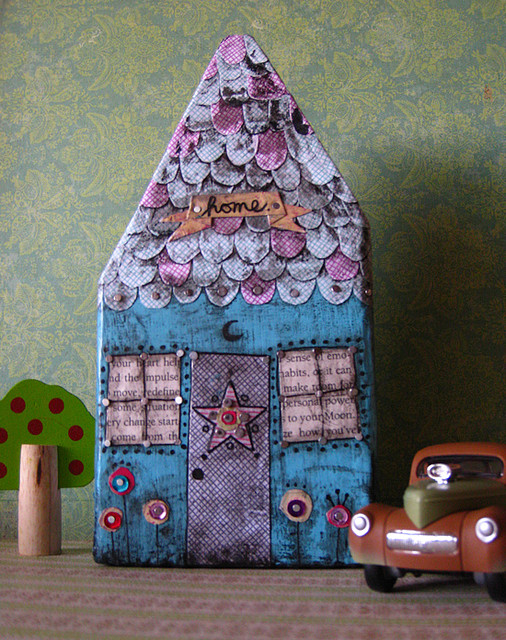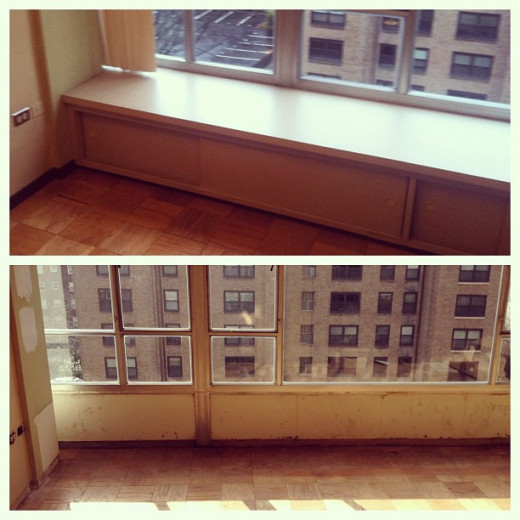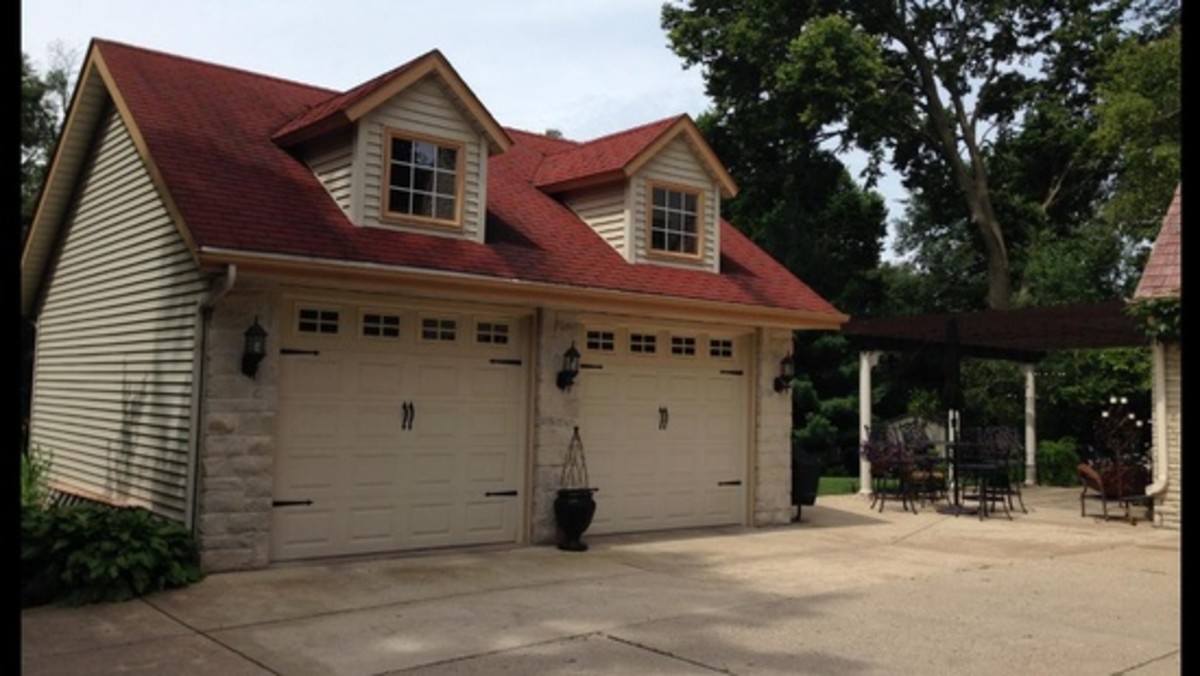14 Tips to Finding the Home That’s Perfect For You

Searching for and ultimately choosing a new house can be a very exciting and also down right terrifying time. Your mind is full of questions: Which neighborhood is best? How will I know if the house has problems and how much will those problems cost to fix? What if I can’t afford the payment? What am I NOT thinking about?
Keep reading! Excellent tips are coming your way!
I’m sure you’ve all heard this so I’m going to get it out of the way first because even though it’s become cliché, it is very important. Location, Location, Location! or Location Matters. While not the only consideration, the location factor is HUGE.
A house that's located on a busy, noisy street may be harder for you to enjoy as a homeowner than one situated on a quiet, secluded cul-de-sac. A home that adds to your commute will invade your down time, so even though you're dazzled by a spectacular interior, the location must be considered. A home that is located near parks, lakes, shopping, and entertainment can add to your quality of life. Again, location matters!
Hand in hand with location goes another tip: Know Your Non-Negotiables before you start looking. Choosing a house requires lots of rational thought, but certain things, even if they're quirky or personal, need to be included in the decision as well. If hearing traffic will drive you crazy, if you must be within a mile of dining and grocery stores, or you have to live close enough to indulge your midnight cravings for a certain burger, tell your Realtor or Agent early on that this is a non-negotiable.
No matter how beautiful a home is and how well it works for the way you live now, if it doesn’t fit your TOTAL lifestyle, it won’t be right for you in the long run. For example, if you’re a hiker and you buy a home in the center of the city, it’s likely it won’t make you happy. If you’re the family that celebrates every single holiday with fun gatherings, hosts the family holidays and entertains all of your kids friends every weekend, a house with a small yard, no decks and without lots of room to park will be frustrating for you. So buy a life, not an address! (Ok, I snuck that last tip in).
Don’t try to purchase a home that works now AND later. Sadly, there’s no such thing as a crystal ball. Wondering whether the house will be too small if your mother has to move in when she retires, or too big when the kids leave for college, can make you crazy. It’s important to think about a home’s role over time, but making a decision with too many variables in mind can work against you. Best advice: Buy a house that works for the way you live NOW and then adapt as you go.

Sometimes buyers get hung up comparing houses based on square footage but you should Avoid the Square Footage Trap. While it’s certainly helpful to know the price per square foot of the homes you are considering, keep in mind that more than square footage determines value. A 2,000 square foot home with 10-foot ceilings will cost more than a 2,000 square foot home with 8-foot ceilings. Also, a 2,000 square foot home with 4 bedrooms can cost more than the same size home with 2 bedrooms and a den.
A house with granite countertops and stainless steel appliances (still the ‘buzz’ words for most buyers) will list for more than one with lower-cost finishes. A home on a large lot will cost more than a home of similar size on a small lot. An older home may cost less than a new home of the same size. You get the idea, right?
With that last thought in mind, let’s discuss age. While it can be nice to move into a place that's brand-new, you should bear in mind that new isn't always better. Consider Both Old and New. While you may find the former homeowner’s decorating not to your taste, you might like the upgrades and perks they leave behind. A finished basement, a backyard deck, plantation shutters or other window treatments that you love are big money savers.
Choose the Neighborhood, Not Just the House. If you narrow your search to 2 or 3 choices and find yourself in a position to decide between a great house in an area that doesn't appeal to you, or a house that's slightly less appealing in a neighborhood that you love, always go with the latter. If that neighborhood is an area full of the things you and your family love to do and have residents that are similar in age with the same interests, that can mean great social opportunities for everyone in the family.
On a side note, you will need to investigate the neighborhoods yourself if you aren’t already familiar with them. A Realtor can’t tell you specifics about who lives in the area or what it even feels like because it would violate the Fair Housing Act. There are great websites you can visit that give you that information as well as local school info and all the amenities in the area. (And don’t forget to talk to the neighborhoods. No one will know better about the neighborhood than them!)
It's almost impossible to find a house with everything on your ‘wish’ list so Don’t Expect Perfection! Instead of focusing on finding THE perfect house, narrow your list by determining the one that you can MAKE your perfect home with as few changes as possible.
Quick Quiz
view quiz statisticsIf you watch House Hunters like I do, you often seen buyers focus on interior finishes like countertops, flooring and paint that become ‘deal breakers’ for that home. Please don’t forget that those things are minor in the scheme of things. You’re not going to expect perfection, remember? Choose a Floor Plan, Not the Finishes.
You can change out tile, paint, countertops and even light fixtures and hardware for much less money than changing a floor plan. Choose a house with the right dining space, kitchen, and a living area that works for your lifestyle. Besides, tweaking the finishes later can also put your personal stamp on the home which helps make it ‘yours.’
Another great tip is to always Trust Your Intuition. Most buyers form an impression in the first few seconds of entering a house. Often the impression you can’t shake is formed when you drive up to the curb or into the driveway. If you feel happy or depressed within those first seconds, take note of that and trust your instincts.
If you walk in and begin arranging your furniture and imagining holiday dinners in the dining room, or game night with your friends in the great room, that’s a good sign that you are connecting to that home. It’s proven that if you begin to place your furniture in specific areas of the home, you are mentally moving in, so chances are the house is a good match for you!
Buying (and moving into) a new home takes a lot of time and effort, and also adds up considerably in closing and moving costs, etc. When looking for a home, Go For the Long Haul. Search for one that you could see yourself living in for 5 to 7 years at least. If you end up staying longer, that’s great too. Staying in place longer will help you avoid the added expenses of moving again. Plus, the extra time spent in your home could be just enough to help you ride out a downturn in the real estate market. As we all know, that has been a factor for the past decade no matter where you live, and it’s one that a lot of buyers still worry about.
This may sound contradictory to everything you initially think about when you look for a new home but Don’t Choose Based on Investment. Don't imagine the dollar signs you'll see the day you sell it. For most people, your house is also your nest… a source of comfort, safety, happiness, entertainment and well-being. So, buy a place that will be great to live in first and think about its resale value second. Besides, predicting real estate cycles and home appreciation is tough enough for the experts and much more so for the average home buyer.
Another good point to consider is that while you want to think of this as your home and not an investment, an exception to the rule might be that it doesn’t really make sense to purchase a white elephant either. If a home is so unlike other homes nearby in terms of size, style, and price, you might want to skip it even if you love it. It could become a burden if you don’t plan to make significant changes to it before you move on someday.

So now let’s assume all of the above has been considered and you’ve done it. You’ve found a few possibilities that can be your new place to call ‘Home.’ Since most of the initial anxiety centers on cost, the first and only way to begin the final decision-making process is to Grab Your Calculator as soon as you narrow your selections down to 2 or 3 homes. That dream home becomes a nightmare the moment that you realize you can’t afford it.
We will assume that you’ve already visited with a lender to see what mortgage you qualify for, but the listing price and mortgage payment is not the only factor to consider. A house with vaulted ceilings costs more to heat than one with low ceilings. A house with a pool means you’ll have addition costs for maintenance. A long commute can add up with extra gasoline cost and also time away from home. Look at the whole picture as those things can add to some unpleasant surprises.
Now you’ve decided on your new home! Congratulations! But there’s still one question left to ask yourself. Should you make an offer right away? Well… Sometimes yes. Sometimes no. Generally you should sleep on it before making any monumental decision, but the exception can be when a real estate market is especially active. If the house you’re interested in has other lookers going in and out like a revolving door, take note. If you ask yourself “Would I be broken-hearted if I lost this house to another buyer?” and the answer is yes, make an offer. It’s not often that you’ll go wrong if you Follow Your Heart!
When all is said and done, it's natural for emotion to come into play in the home-buying process. Buying a house is a big decision, but this is exactly why you need to ensure that you are making rational choices, rather than getting wrapped up in the notion of a dream home.
Slow down, analyze your emotions, and ultimately, make a home-purchase decision that's good for both your feelings and your finances. With these tips, and the right realtor, you simply can’t go wrong.
Quick Quiz
view quiz statisticsRelated Articles
© 2013 Victoria Van Ness










